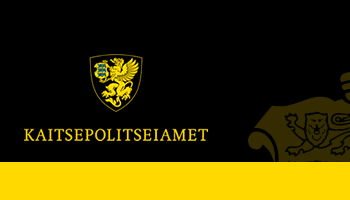‘Considering the American ability to influence the climate in Vietnam, Soviet academics were convinced that advances in science allow manipulation of large-scale climate changes,' said Vitali Vassiljevits Fjodorchuk.
Kaarel Kaas of the Estonian Defense Studies Centre has observed that the public had two different stereotypes in mind when considering the effectiveness of the Russian intelligence services on the job. On the one hand, the KGB was thought to be manned by bungling, comical idiots who could in fact believe in the preposterous such as human control of the climate. In direct opposition to this image was the recognition of the KGB as an omniscient, omnipotent presence who cannot be challenged by such pitifully small entities such as Estonia.
Kaas suggested that KGB reality owns some qualities of both stereotypes.
Perhaps Russian intelligence services just recently exemplified a hybrid organization combining both idiocy and astuteness in considering whether to proceed with a Crimean style operation in the Baltic states. According to Russian political scientist Dmitri Oreskin, the Russian intelligence specialists, (individuals ‘close to Putin'), basing their conclusions on investigations conducted in March, concluded that a takeover of Estonia and Latvia modelled on the Ukrainian experience would fail. This would be realistic, sobering advice after a stereotypical, somewhat doltish urge to repeat the achievements of Crimea.
Intelligence services in general gain most of their information about target countries and objects from unclassified, public sources such as the media and now the internet. In the 1990-s information about Estonian political parties, their major personalities, individual relationships, competing interests, behind-the-scene gossip would be available in the open media. This would help the Russian intelligence services to target specific individuals and take advantage of situations for influence operations.
In the 1990-s influence operations concentrated more on helping to establish a strong pro-Moscow orientation among Russian speakers in Estonia. However political parties organized for the Russian speaking community in Estonia did not attract wide political support. (In fact it was not unusual for political figures in Moscow to urge Russian voters in Estonia not to split their vote by voting for Russian parties that had a slim chance of gaining any seats in parliament. Rather they suggested that they vote for Edgar Savisaar's Centre Party for that way they could get representation and would be backing their own favourite policies anyway. It's noteworthy that ethnically Russian, Yana Toom [Jana Tsernogorova], an Estonian citizen since 2006 has just won a seat in the European parliament as a member of the Centre Party. One would logically assume that at least part of her success was based on the fact that the Russian speaking voter supported someone in the Centre Party, as Moscow has suggested and not an obscure Russian party. Yana Toom advocates the Kremlin position on the language of instruction in schools be left Russian in Russian schools.)
The first decade of the 21st century, during Putin's rise to power, Russian intelligence activities became more active with Estonia as the target. As the Russian FSB (their domestic security force) shifted their attention also onto Estonia, the anti-Estonian intelligence offensive intensified. Estonia as a member of both NATO and the EU was seen as a conduit to confidential material generated by other member states. Karel Kaas points out that of the 3000 classified documents passed on by Herman Simm to the Russians did not centre on Estonian specifics, but rather NATO as an alliance. Estonia was now in the information sharing loop, making it an attractive source for penetration.
Russian intelligence has also broadened out into the energy sector, a part of international trade on which Russia is fully dependent to keep the country financially afloat. This is accompanied by intelligence operations targeting technology and research. Estonia is known to be involved in advanced genetic research and innovative computer programming just to name a few fields. Skype's Tallinn development centre is likely an enticing object.
Kaarel Kaas notes that Russian influence operations have attempted in the past decade to create confrontations between the ‘two sides' of Estonian society. The operations are involved in heightening the ethnic emotions in discourse on the interpretation of history. They have constantly fed the Russian speaking minority in Estonia notions of the legitimacy of the Soviet annexation of the Baltic states in 1940, of the denial of a 50-year-old foreign occupation, of the ‘liberation' of the Baltic states at the end of WWII etc. Knowing that these are issues central in establishing an Estonian national identity, Russian intelligence exploits their cultural importance.
Accompanying the attitudinal differences in historical memory is the issue of the Russian language within the Estonian setting. Russian intelligence is constantly searching for allies to lead the protest against the Estonian language as the only official language of the state, in spite of the fact that in some north eastern Estonian areas municipal day-to-day affairs the language of record is Russian. That fact that legislation was passed years ago, making Estonian the language of instruction (although only two thirds of school subjects have to adhere to this) in all government schools, the Russian intelligent services has been able to recruit activists who keep the language question on the domestic and international political agendas. They label the issue as one of human rights violation. Taking into consideration the need for additional preparation in some schools, the government has postponed the enforcement on numerous occasions over the years to accommodate the Russian language schools. In practical terms, finally the changes have been made but the issue is kept alive at the behest of Moscow's clandestine services. (To be continued)
Laas Leivat




